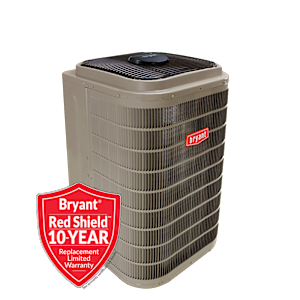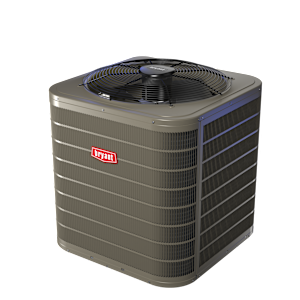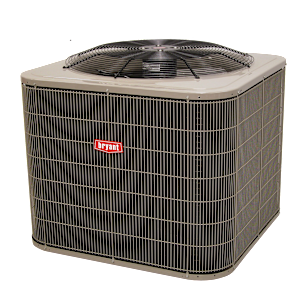What Is A Heat Pump and How Does a Heat Pump Work?
How Does A Heat Pump Work?
“A heat pump uses electricity to provide both heating and cooling to a home,” Mike Lea, co-owner of Lea Heating & Air Conditioning in East Dundee, IL, said. “A heat pump transfers heat from one place to another. In the winter, a heat pump transfers heat from the outdoors and moves it inside. In the summertime, it reverses and it moves the heat from indoors to outdoors. In heating mode, a heat pump works like an air conditioner, but in reverse. Instead of using refrigerant to keep your home cool, it uses refrigerant to warm your home.”
The 3-Step Process of Heat Transfer
- Absorption: The outdoor unit (in air-source systems) extracts heat from the outside air, ground, or water source. Even in cold weather, there is thermal energy present in the air.
- Compression: A compressor increases the pressure and temperature of the refrigerant, concentrating the absorbed heat.
- Distribution: The heated refrigerant flows to the indoor unit, where a fan blows air over the hot coils, releasing warmth into your home. In summer, this flow is simply reversed to pump heat out of the house.
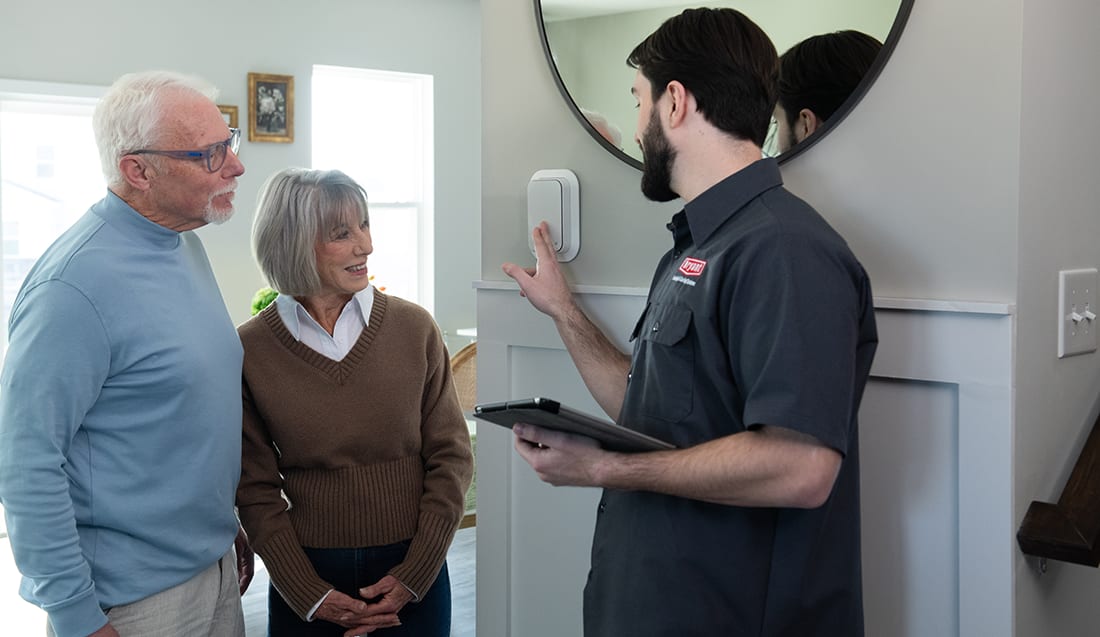
Types of Heat Pumps
Air-Source Heat Pumps
Ground-Source (Geothermal Heat Pumps)
Ductless Mini Split Heat Pumps
4 Key Benefits of Installing a Heat Pump
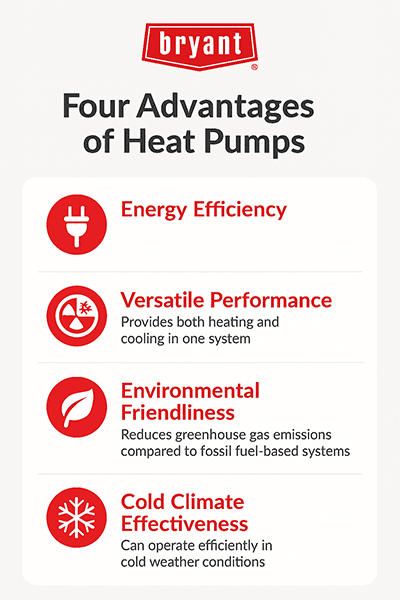
- Energy Efficiency: By transferring heat instead of burning fuel, high efficiency heat pumps can significantly lower your energy bills.
- Versatile Performance: You get a heating system and an air conditioner in one unit, simplifying maintenance and freeing up space.
- Eco-Friendly Operation: Heat pumps reduce your carbon footprint by utilizing electricity (which can come from renewable sources) rather than burning natural gas or oil onsite.
- Cold Climate Reliability: Modern cold climate heat pumps are engineered to perform efficiently in sub-zero temperatures, making them a viable option even in northern regions.
Connect With a Bryant Dealer On All Things Heat Pumps
Discover Bryant Heat Pumps
Choose a Bryant heat pump for reliable, energy-efficient heating and cooling all year round. Known for their durability and advanced technology, Bryant heat pumps offer superior comfort while potentially lowering energy costs. With quiet operation and smart features like variable-speed motors, Bryant systems ensure optimal temperature control. Backed by industry-leading warranties and professional heat pump installation from your local Bryant dealer, a Bryant heat pump is a long-term investment in comfort, efficiency, and peace of mind for your home.
Heat Pump FAQs
- Explore heat pump repair
- Read our guide to heat pump cost
- Discover the differences between a heat pump vs furnace
- Learn about 3 ton heat pumps and 4-ton heat pumps
- Read up on dual fuel heat pumps
- How do I know if I have a heat pump?


